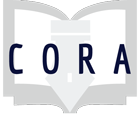ChatGPT is an generative artificial intelligence chatbot released in November 2022 by OpenAI. What are the opportunities in using this tool to teach library instruction? This document highlights various ways to engage with learners in critically analyzing ChatGPT (version GPT-3) and its responses through the ACRL Frame: Information Creation as a Process.
Assignments
An open access MOOC in French to bonify the information literacy skills of university students (with Moodle).
This activity provides an interactive, student-centered, fun opportunity to explore skills of critical thinking and evaluation of resources. By allowing students to connect those things that they already know (even if they don’t know they know it) to larger concepts, we encourage them to trust themselves and to begin to develop their intuition as scholars, moving away from checklists and formulas for resource evaluation and toward a thoughtful critique of sources based on individual need and use.
Comment envoyer une minorité d'étudiants surmotivés sur des objectifs pédagogiques intégrés et connexes dont le parcours est structuré ?
1) Faire une courte introduction engageante (15min.)
2) Identifier la minorité surmotivée et leur distribuer un parcours.
3) Assurer une supervision mininal avec un suivi distant et ponctuel au besoin.
Avec 2 exemples de parcours: une auto-initiation en 5 niveaux pour contribuer à Wikipédia; et un programme de 12 semaines pour démarrer un blogue sur un sujet de recherche.
Synthèse ludique des ateliers d'évaluation des sources. Peut être utilisé comme récompense : un exemplaire plastifié est offert à l'étudiant qui trouve l'erreur volontairement insérée dans la formation (les autres n'ont que la feuille en papier). Autre utilisation : trouver le document le plus faible parmi vos références, ou parmi les références du syllabus de tel cours.
This lesson was co-developed by Daniel Ransom and Nicole Branch. This is an intensive APA workshop that could be broken into parts. It covers both APA citation and formatting, with a protest theme. The workshop was conducted as a stand-alone, outside of class workshop at Holy Names University in 2014 and 2015. Though Occupy is now dated, the theme of protest could be adapted to something more current. We didn't think it would be possible to make APA citation engaging, but this lesson did just that. It was especially popular with nursing and education students.
Created by M. Brown-Salazar Saint Mary's College of CA This lesson was developed to have graduate level students explore social justice issues in information found on the internet. It is based on Dr. Safiya Noble's work: Algorithms of Oppression. Simplified, we asked students to consider that when we seek information, we need to examine the perspective/privilege of the voices/sources of information and identify/understand whose voices are represented and whose voices are missing and how that impacts/influences our understanding.
Students will learn to identify where they might find school and community data; practice accessing this data; and create a school community data profile. Students will also be introduced to some of the problems of bias when looking at school and community data. For part one, student will find data for the high school they attended and the community they grew up in. In part two, students will collect the same data for a school in the community they will be working in over the course of the quarter.
